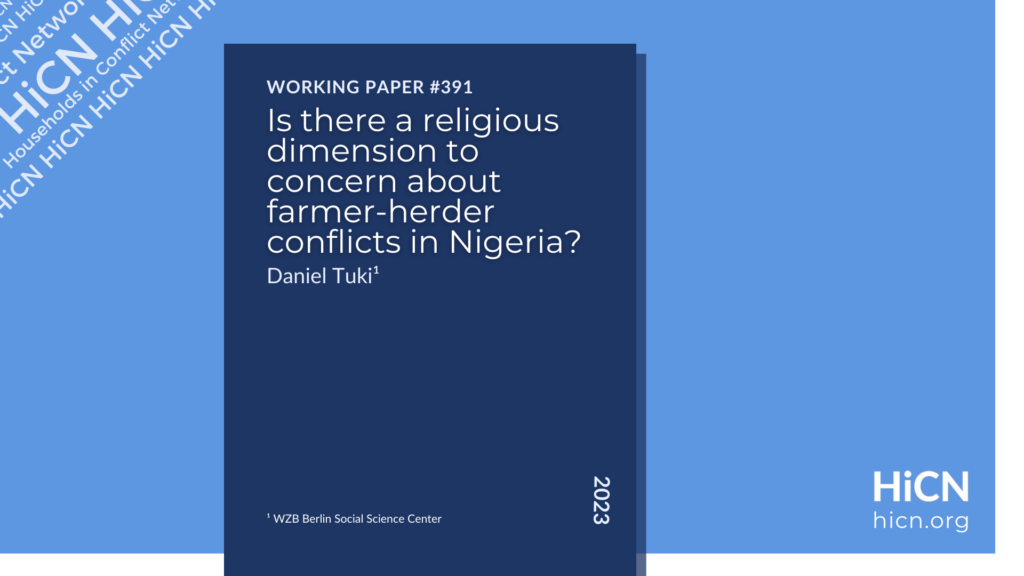
Although many studies have been conducted on the conflicts between Fulani nomadic herders and sedentary farmers over land and water resources in Nigeria, very few have examined the religious dimension of these conflicts. In fact, some studies have described the religious dimension as an oversimplification of a complex social problem. But is this really the case? Is religion important in understanding the dynamics of the conflict? My instrumental variable regression results show that Muslim domination – a scenario where the population in a local government area (LGA) (i.e. municipality) is predominantly Muslim – reduces the likelihood of being concerned about farmer-herder conflicts. It also shows that Muslims are less concerned about the conflict than Christians. A plausible mechanism behind this finding is that the common religion of Islam shared by the nomadic Fulani herders and the Muslim sedentary population allows for trust to be established between members of the two groups, which in turn makes it easier for conflicts over land and water resources to be resolved amicably without recourse to violence.